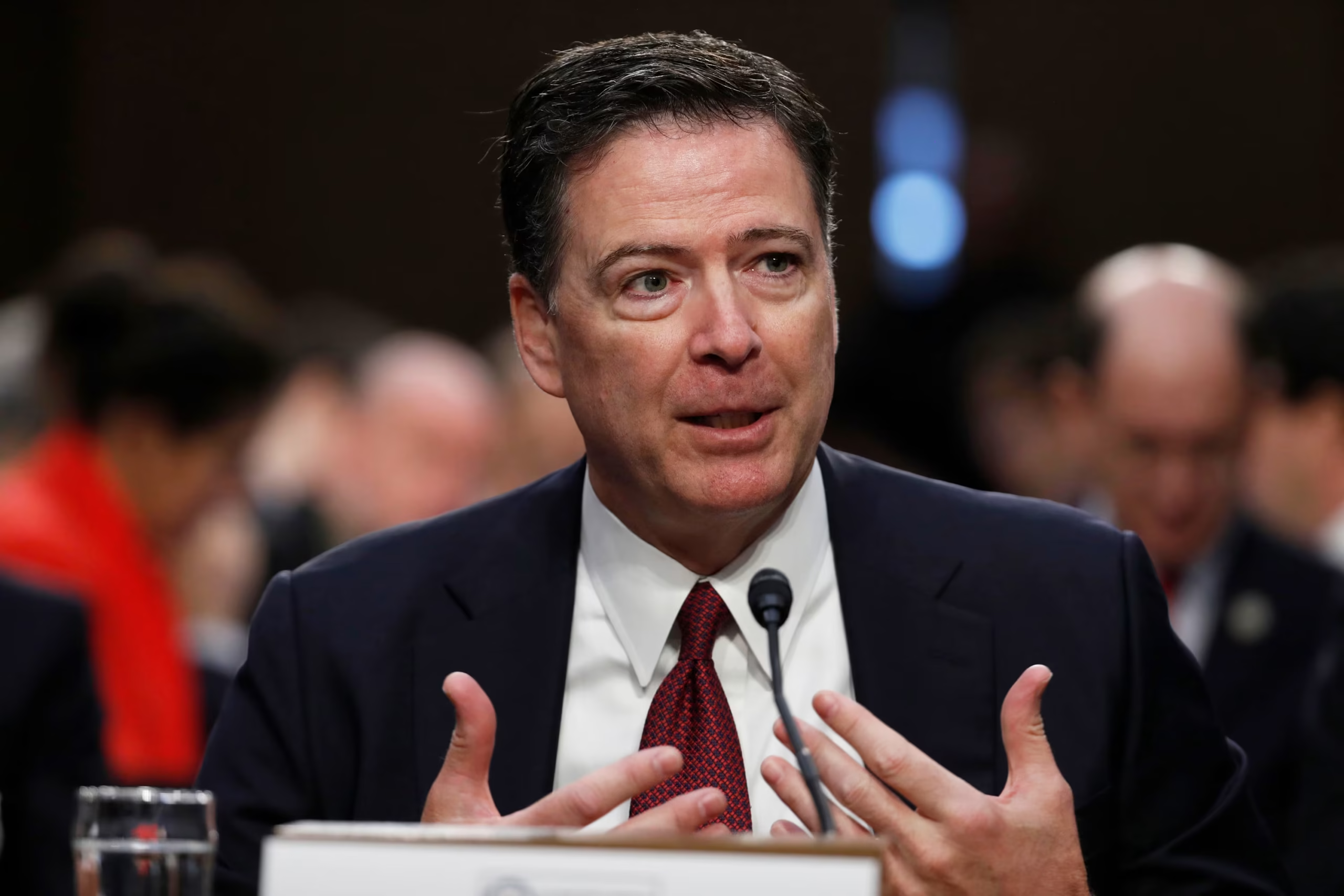Washington, D.C. — Former FBI Director James Comey took a significant step Monday in his legal defense by filing two motions aimed at dismissing federal charges that accuse him of lying during congressional testimony. The case, initiated by the Justice Department under former President Donald Trump in late September, has already drawn national attention given Comey’s prominent role in high-profile investigations during the Trump administration.
Comey’s legal team contends that the prosecution represents an “egregious abuse of power by the federal government” and violates constitutional protections. According to their filings, the Constitution not only allows citizens to speak critically about the government but also prohibits the government from retaliating against individuals for exercising that right.
“The United States Constitution entitles individuals to speak out against the government and, in turn, forbids the government from retaliating against individuals for their protected speech,” Comey’s attorneys wrote. “But that is exactly what happened here.”
Comey has pleaded not guilty to two counts: providing false statements and obstructing a congressional proceeding. Both charges stem from his testimony regarding investigations into Russia’s interference in the 2016 presidential election and related matters.
Claims of Selective and Vindictive Prosecution
A central pillar of Comey’s defense is that he was singled out for prosecution because of his outspoken criticism of Trump. His attorneys argue that the former president has long harbored personal animosity toward Comey, particularly following his firing in May 2017 amid the Russia investigation.
“The pattern of President Trump’s statements and actions demonstrates a clear intent to subject Mr. Comey to official reprisal for his protected speech,” the filing states. Comey himself emphasized this point on social media, noting that “there are costs to standing up to Donald Trump.”
Legal experts caution that claims of selective prosecution are difficult to win, but high-profile cases with extensive public commentary by political figures may create exceptions. In their filing, Comey’s lawyers included a comprehensive record of public statements by Trump attacking Comey, which they labeled “smoking evidence” of politically motivated prosecution.
Challenging the Legitimacy of the US Attorney
Comey’s defense also targets the legality of the prosecutor who brought the charges. Trump appointed White House adviser Lindsey Halligan as interim U.S. Attorney for the Eastern District of Virginia after the previous interim attorney, Erik Siebert, was forced out under pressure to pursue a separate indictment against New York Attorney General Letitia James.
According to Comey’s attorneys, Siebert had already served the legally permitted 120-day term for an interim appointment. Halligan’s subsequent appointment, they argue, was therefore unlawful and designed to circumvent Congress’s constitutional role in confirming U.S. Attorneys.
“Any differing interpretation of the Constitution’s Appointments Clause would allow the government to string together sequential 120-day appointments and thereby indefinitely evade Congress’s advice and consent requirement,” the filing asserts.
Comey’s lawyers also referenced a recent case involving Trump’s indictment in Florida, where a federal judge dismissed charges on the grounds that the special counsel’s appointment was “not authorized by law.” They argue that a dismissal with prejudice is necessary to prevent the Executive Branch from engaging in repeated unlawful appointments and prosecutions.
Implications and Next Steps
The outcome of these motions could have far-reaching implications for both Comey and broader questions about executive power and prosecutorial authority. While dismissals based on claims of selective prosecution or improper appointments are rare, the extensive record of public statements and precedents cited in the filings could increase the motions’ chances of success.
Comey’s case highlights ongoing debates over the limits of presidential authority, the independence of the Justice Department, and the legal protections afforded to government officials who publicly criticize elected leaders. Legal observers note that the proceedings are likely to involve extensive pretrial motions and detailed examination of both constitutional and procedural arguments.
As the case unfolds, it is expected to attract sustained attention from both the media and the public, given Comey’s high-profile status and the continuing scrutiny of the Trump administration’s actions during and after his presidency.

